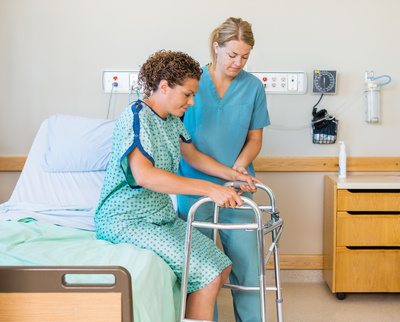 Overview: The Cleveland Clinic is reevaluating surgical recovery procedures with the Enhanced Recovery After Surgery (ERAS) protocols. The protocols have shown an 83% reduction in the use of pain medication, including opioids, and instead engages in alternative pre- and post-surgical approaches to pain.
Overview: The Cleveland Clinic is reevaluating surgical recovery procedures with the Enhanced Recovery After Surgery (ERAS) protocols. The protocols have shown an 83% reduction in the use of pain medication, including opioids, and instead engages in alternative pre- and post-surgical approaches to pain.
ERAS Explained
Ten years ago, if you were going into surgery, you would be advised to not eat beforehand, treat pain with medications such as morphine or its derivatives, and to rest as much as possible. The goal of this advice was to limit complications from surgery.
And yet, it’s clear that new approaches are needed. Readmission to hospitals after a procedure have steadily risen, and the opioid epidemic has been caused, in part, by excessive use in medical settings. The Enhanced Recovery After Surgery (ERAS) protocols designed by the Cleveland Clinic take a different approach.
While there are multiple types of ERAS strategies, on a basic level ERAS really boils down to the exact opposite of traditional advice. Patients are encouraged to eat before surgery, movement after surgery is planned, and, most importantly, instead of pain management resting on a single class of drugs, doctors are focusing on multi-modal analgesia.
Better Protocols Mean Fewer Opioids
In the context of the current drug epidemic, multi-modal analgesia stands out. It uses a mix of different pain medications, including well-tested drugs like non-steroidal anti-inflammatory drugs (NSAIDs), acetaminophen (best known as Tylenol in the U.S.), local anesthetics, and alpha-2 agonists in addition to opioids.

However, both the timeline and our understanding of pain have evolved. In terms of timeline, doctors are asking whether a patient who needs to go through what can be a difficult weaning process or struggle with addiction is really “cured.” Rising overdose rates have also raised concerns about long-term patient care.
Similarly, our understanding of pain management has evolved. For example, many back pain patients who would have gone to a surgeon for relief now will seek out a chiropractor or work with a physical therapist.
In addition to being non-invasive and cost-effective, both reduce prescription and use of narcotic medications. Many rehab centers are beginning to focus on a broader range of treatments accordingly.
The Cleveland Clinic results show that opioids could have been avoided completely in 83 percent of cases with improvement in pain management scores. Their ERAs protocols also led to shorter hospital stays, fewer blood clots, and fewer readmissions, which leads to less exposure.
These results have enormous implications where an estimated 2 million Americans are living with opioid addiction.
There is no one solution to substance use disorders. However, reducing opioid use in favor of other well-tested, non-addictive methods is key. ERAS protocols can play a significant role in working toward that goal.
To learn more about the many approaches to substance use disorders and recovery, contact us.








